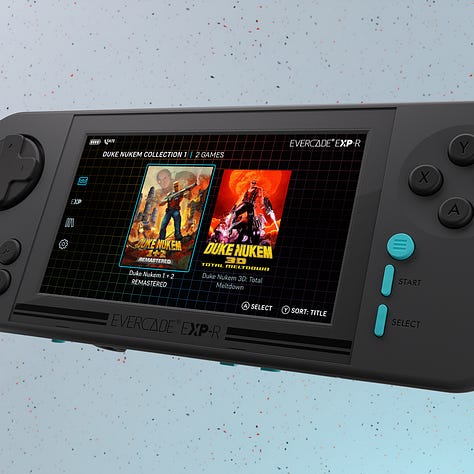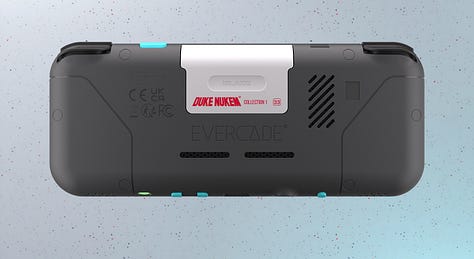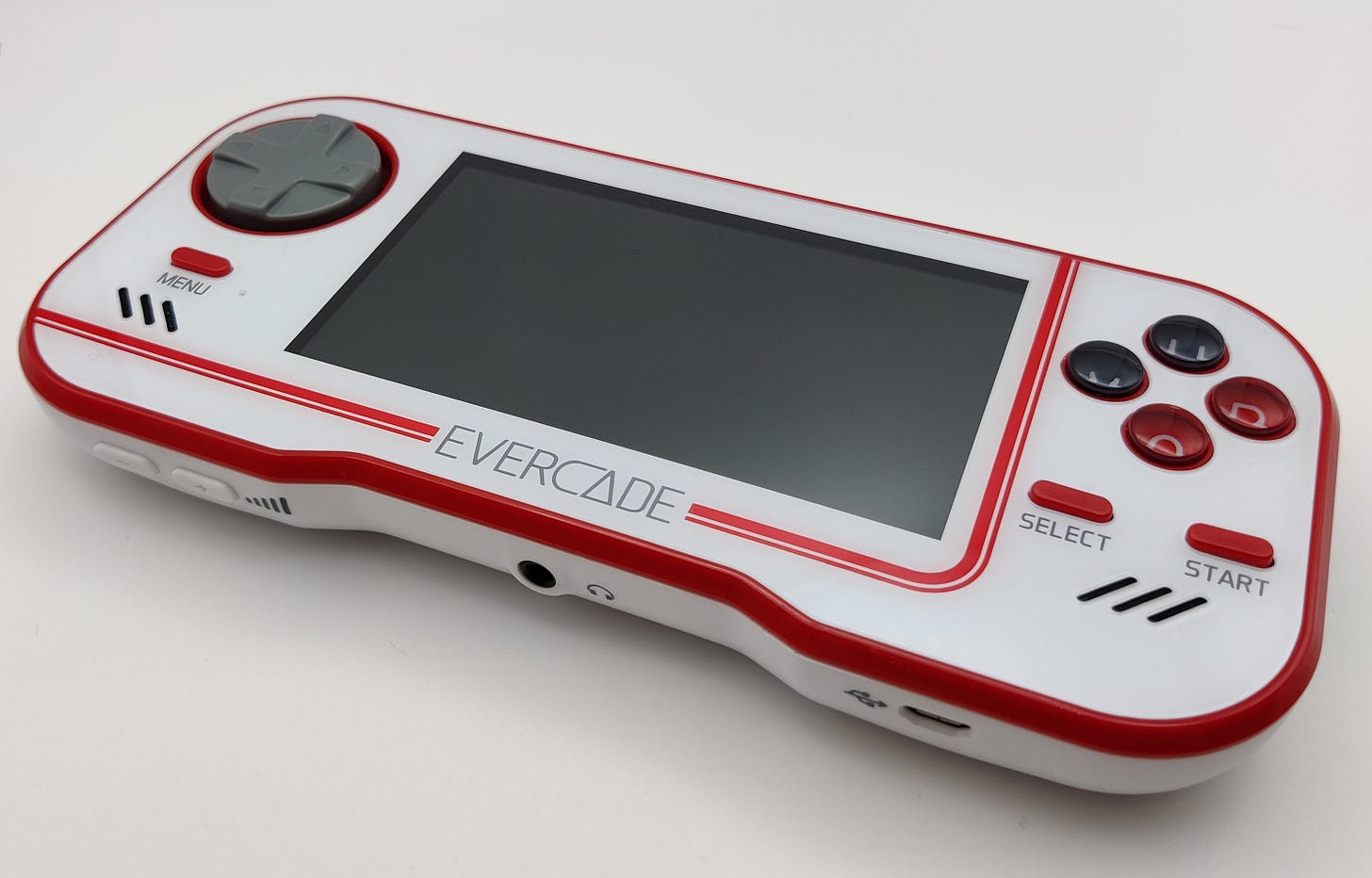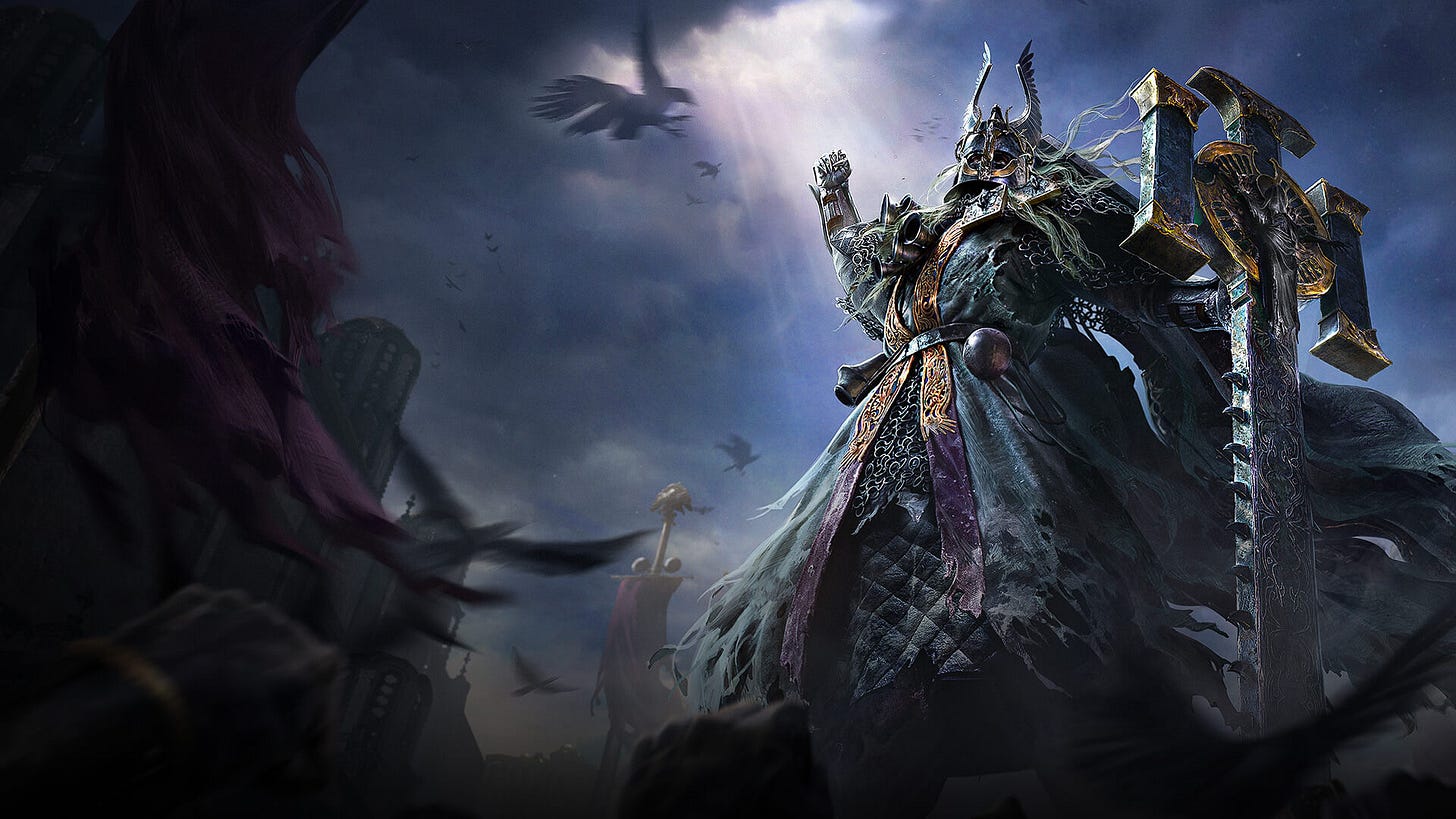It's an exciting time in the gaming industry as both Microsoft and PlayStation seem to be in the process of developing new handheld gaming systems. This news is particularly thrilling as handheld gaming is currently experiencing a surge in popularity.
Valve’s 2022 release of the Steam Deck broke open the floodgates for a path toward mainstream handheld PCs (and a slew of competitors). At the same time, Nintendo’s upcoming still-to-be-detailed, likely-2025 Switch sequel has players salivating over what new ways of fun that company might have in store for them.
Among these high-end, likely pricey systems is another, perhaps surprising, entry: one dedicated not to big platforms but to classics and indies.
While the Evercade handheld game console didn’t launch until 2020, development started on the cart-based retrogaming system in 2018. According to Blaze Entertainment’s head of marketing, Sean Cleaver, the goal was to create a better form factor for the ubiquitous plug-and-play systems of the time.
Key among its early decisions was to make the Evercade handheld a cartridge-supporting device instead of a purely digital device.
“One of the main reasons, outside of the big pull of official physical media in a digital age, was so that people had a reason to come back to the Evercade,” Cleaver said. “There were many mini consoles throughout the previous years, official or otherwise, and once the allure had worn off, it either went on a shelf, in a drawer or just sat - not being played.
“Cartridges bring us back to an era when gaming was a much simpler pastime, both in the playability of games, ease of controls, and no question of ownership/license, etc., on what you purchase, unlike digital games. But it also enabled us to bring new physical products for your device regularly, meaning you always had something new to try. That regular release schedule of cartridges continues to this day.”
That initial release was met with a positive reaction, in part because delivering a cartridge-based retro-centric system in 2020 was, as Clever says, “a pretty mad, novel idea.”
A lot of research is also put into what sort of games would come on those carts. Instead of relying on the classics, Blaze Entertainment also pushed indies and lost treasures out in cart collections.
“It’s always a really fun mix of seeing what we have on offer from the licensor and making the most interesting cartridge that you can,” Cleaver said. “ Most publishers that we work with have big hits but also cult classics and some genuinely undiscovered gems. So we try to balance all of these across a single release.”
Among some of those surprise carts are the Gaelco arcade game collections—many of which didn’t survive in their original Jamma board form—and the effort put into the remastering of Duke Nukem 1 and 2.
“There’s always something everyone here is proud of,” Cleaver said.
Two years after the original Evercade was released, Blaze Entertainment released an improved version. The Evercade EXP tweaked the button layout, adding a couple, increased resolution, improved the chips, battery life, and added Wi-Fi, among other improvements. It also included 18 built-in Capcom games and could still play all of the carts from the original system.
Cleaver said the ability to update the system through Wi-Fi was probably its biggest change, but the smaller changes mostly came from player feedback.
Overall, the system is designed to look and feel more like a gadget than a toy to attract a bigger audience.
Later this month, the company will release its third handheld iteration, the Evercade EXP-R. The new system aims to be even more straightforward, removing both the built-in games and the HDMI out found in previous systems., focusing on the handheld experience. It will also sell for less.









The new system hits as Blaze Entertainment tops 1 million cartridges sold for their systems.
And now, three generations and four years into Blaze Entertainment's line of handhelds, others are taking the form factor in a direction aimed more at modern games and gaming. However, Cleaver says he believes the retro market also continues to grow.
“The fact we’re still here and growing suggests there’s still an appetite,” he said. “We always say this gaming space and our presence in it is complementary and not necessarily competitive."
Next year will mark the 50th anniversary of what was arguably the first handheld game. Over the course of those five decades, systems have grown and shrunk, screen technology has evolved, but the experience of playing a game in your hand--whether you're trying to catch some light from a passing street lamp while in the back of a car or zipping through an international flight deep in some gloriously coded world--remains magical.
They have always been a bit of technological delight and, as Cleaver says, "cool."
“Many gamers just like to have cool things, and there are other handhelds released in the last few years that have their own place in our market, like Analogue and PlayDate. There are hyper-premium options now with Steam Deck and other PC handhelds. So the handheld movement is alive and well.”
Elsewhere
District 9 director Neill Blomkamp on the over-the-top, ultra-violent satire of Off the Grid
Path of Exile 2: The long road to exceeding a decade of expectations
How Infinity Nikki became the ultimate dress-up game—and so much more









You forgot the analogue pocket…